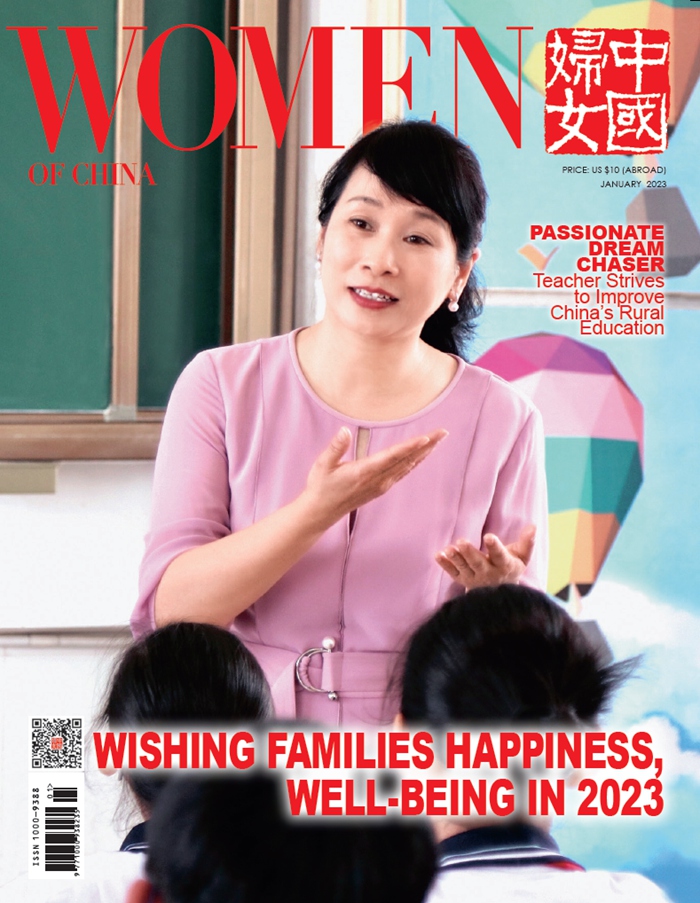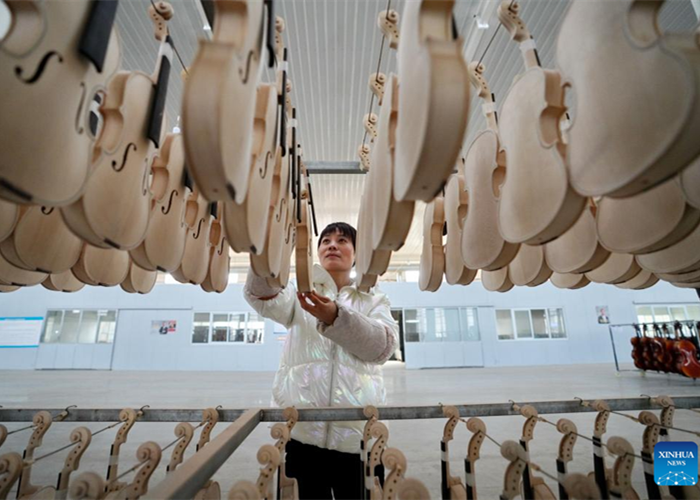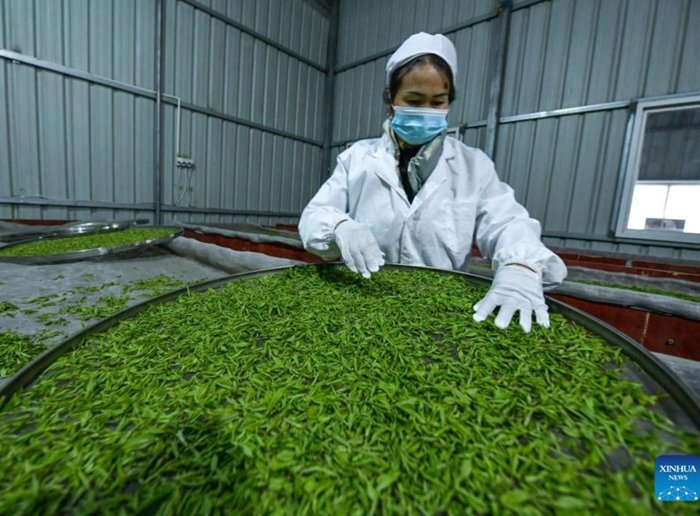NPC Deputy Works to Advance Rural Cultural, Ethical Progress
"Reading and writing changed my life, so I want reading to change the lives of other rural residents," she said.
Ma lives in Hongsibu District, Wuzhong in central Ningxia. It is a settlement area of ecological migration projects for poverty alleviation. After years of ecological development and construction, forest coverage in the district surged from less than 5 percent to today's 39 percent, and the per capita annual disposable income of rural residents also spiked to nearly 10,000 yuan ($1,537) from 500 yuan.
"Poverty alleviation is not only about materials, but also cultural and ethical progress," Ma noted, adding that it's a great time to advance cultural and ethical construction given the remarkable progress achieved in poverty alleviation.
Three years ago, Ma received a message from a rural resident complaining about the insufficient rural libraries. Upon investigation into the cultural construction in her hometown, Ma discovered the dated facilities at some county-level libraries and cultural clubs. Such cultural services were even absent in some places, she found.
Therefore, she collected nearly 10,000 books and established a rural reading club in her village, calling on villagers, especially women to read books and learn what was happening in the outside world. She also organized a group that taught illiterate villagers to read.
"There were only 20 members at first, including two illiterate ones," Ma recalled, saying that made her better realize what was on her shoulders.
In recent years, the book club has become a place where she fulfills her duties as an NPC deputy. There, she always gives lessons to the villagers and helps them to learn more general knowledge. Sometimes she would explain to the villagers how knowledge can build one's future with her personal experiences, to encourage them to study and pursue their dreams. Besides, she also exchanges ideas with the villagers to learn about their needs for intellectual and cultural activities.
Under the guidance of Ma, more and more villagers are placing high importance on literacy education.
"I couldn't even write my name, or keep accounts of my shop," said Ming Xiaolan, a frequent participant of Ma's reading club from Chaoyang Village of Hongsibu District. She said she was glad that she finally recognized characters, which was like a dream coming true.
Yang Furong from Yuchi Village is a skilled hat weaver who knows nothing about marketing. Now, she comes to the reading club every day, saying she will open an online store once she's literate enough.
Now, Ma is planning to promote the reading club mode across Hongsibu District, to create more opportunities for residents to study and communicate.
She's also focusing on rural cultural and ethical progress during this year's "two sessions," hoping to both increase the wealth and enrich the knowledge of rural residents during the process of rural revitalization.
 |
| Ma Huijuan (R) teaches a villager to write at her reading club, May 8, 2020. [Xinhua/Feng Kaihua] |
 |
| Ma Huijuan (2nd, L) teaches a villager to write at her reading club, May 8, 2020. [Xinhua/Wang Peng] |
(Source: People's Daily Online)
Please understand that womenofchina.cn,a non-profit, information-communication website, cannot reach every writer before using articles and images. For copyright issues, please contact us by emailing: website@womenofchina.cn. The articles published and opinions expressed on this website represent the opinions of writers and are not necessarily shared by womenofchina.cn.








 WeChat
WeChat Weibo
Weibo 京公网安备 11010102004314号
京公网安备 11010102004314号